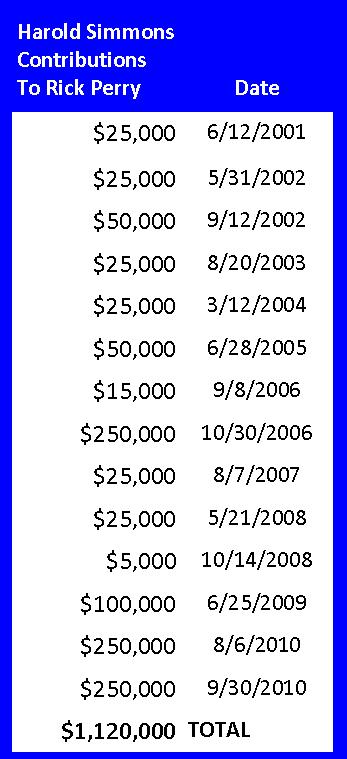UPDATE:
Ethics Commission rejects opinion to allow out-of-state donors to pay Paxton’s legal bills
Vote was 4 to 3 with one absent
At the beginning of the last legislative session, Governor Abbott announced he was making ethics reform an emergency priority for the Texas legislature to address. In the end, very little ethics reform was passed, and now the Texas Ethics Commission is poised to adopt a dangerous “advisory opinion” Monday that hangs a “For Sale” sign on the Texas Attorney General’s office.
The draft opinion (AOR-605) invites out-of-state donors to give indicted Attorney General Ken Paxton unlimited amounts of money to pay his ballooning criminal defense bills (see Houston Chronicle story below). This opinion is a powerful magnet for political corruption, one drafted for the exclusive benefit of Ken Paxton, who is under indictment for alleged criminal securities fraud.
Send an email message today urging the Ethics Commission to:
- Reject the Paxton Loophole; and
- Pursue an absolute ban on all gifts for the AG’s criminal defense.
Email your brief comments to: Commissioners, Texas Ethics Commission at: public_comment@ethics.state.tx.us,
Below is an article by the Houston Chronicle on the proposed ethics opinion
Proposed ethics opinion would let AG tap out-out-of-state donors for defense funds
By David Saleh Rauf and Lauren McGaughy
January 26, 2016 Houston Chronicle
AUSTIN – Indicted Attorney General Ken Paxton could tap out-of-state supporters to pay his legal defense team but must ensure those funds have not been funneled from any Texas donors, according to a draft advisory opinion from the state’s ethics regulator.
The Texas Ethics Commission is scheduled to vote Monday on legal guidance that would give Paxton, or any employee in the attorney general’s office, the green light to accept gifts from some donors.
If approved, it would clear the way for the embattled attorney general to accept contributions to cover his legal expenses from out-of-state donors, with certain conditions.
State law prohibits agency officials from accepting a “benefit” from someone under the agency’s oversight.
However, the ethics commission has said situations exist in which Paxton and his employees could accept gifts – namely from an out-of-state donor with no pending matters before the attorney general’s office – but that safeguards would have to put in place to prevent potential conflicts of interest.
The draft opinion for the first time addresses the possibility of money bundling and suggests heightened disclosure for gifts to employees of the attorney general’s office to avoid the perception of corruption.
It comes as Paxton and his team of high-profile defense attorneys appeal a recent court ruling while preparing for a possible trial in his pending felony fraud case.
‘Diligent inquiry’
Paxton is accused of breaking state securities laws by encouraging investors to buy stock in a North Texas tech company without disclosing that he was being paid by the firm, and for funneling clients to a friend’s investment firm without being properly registered as an investment advisor representative with the state.
He faces two first-degree felony charges, which carry a sentence of five to 99 years in prison and a fine, and one third-degree charge.
Paxton repeatedly has declined to detail how he is paying for his attorneys, saying only that neither his $2.5 million in campaign funds nor taxpayer money is being used.
A draft opinion released in late November provided the initial blueprint for Paxton to avoid violating the state’s gift-giving laws while accepting a “benefit” from a donor in certain circumstances.
The opinion was crafted in response to an anonymous request that specifically addressed situations in which potential donors are from outside Texas, minimizing the possibility they could be subject to the attorney general’s vast umbrella of jurisdiction.
The commission sent the proposal back for more internal vetting after questions were raised about the possibility that an out-of-state supporter could bundle or mask the fact that funds were coming from Texas donors.
The commission now is set to take up the refreshed guidance, which makes clear that Paxton or anyone in his office accepting a gift first will have to root out the “true source of the benefit” to ensure he is abiding by the law.
“We do not think that a person who is subject to the jurisdiction of a public servant or a law enforcement agency can evade the restrictions … using another person as a conduit for making a gift to the public servant (e.g., by giving a benefit to another with the instructions that the benefit then be passed to the public servant),” commission staff wrote in a draft opinion released this week. “Similarly, the public servant would be prohibited from accepting a benefit if the public servant knows that the true source of the benefit is a person who is subject to the jurisdiction of the public servant.”
The draft also proposes a set of “best practices” for disclosure, including recommendations that any such gift, along with its source, value and a description, be revealed publicly within 30 days.
A “diligent inquiry” also would have to be performed by whomever receives a gift to make sure the donor has no connection to Texas and is not under the attorney general’s jurisdiction. That inquiry, according to the latest draft, also would need to verify that the out-of-state donor “is not operating as a conduit” for someone else.
Not for sale
Watchdog groups reacted with swift criticism, saying the latest proposal invites the potential for an already-indicted attorney general to put a “for-sale sign on the AG’s office to pay for his criminal defense.”
“A close reading suggests that the commission has qualms about this convoluted ethical blank check,” said Craig McDonald, director of the left-leaning watchdog group Texans for Public Justice, which has filed multiple criminal complaints against Paxton, including one related to his current indictments. “The opinion should have been written in one word: No!”
The ethics commission does not identify who asks for an advisory opinion, but the circumstances laid out in the request mirror those of the attorney general.
At a recent hearing, the commission debated the issue with pointed comments specifically aimed at how the opinion could help establish the equivalent of a legal fund for Paxton.
Paxton also recused himself, without explanation, from all matters pertaining to the ethics commission just as the opinion request was being considered publicly.
The question of who is footing Paxton’s legal bill has become one of the mysteries in his ongoing criminal saga. His defense is expected to cost millions of dollars.
Paxton, a Republican, took office in January 2015 and was indicted six months later for allegedly violating state securities laws during his time as a state lawmaker. He was fined and reprimanded in April 2014 for not registering with the state as an investment adviser representative but has pleaded not guilty to all charges and asked for a jury trial in his home county.
No gift ban
Meanwhile, ethics regulators have been wrestling with the issue of gifts for employees in the attorney general’s office since July, when the request for an opinion first was lodged.
A blanket prohibition on gift-giving exists for the governor, lieutenant governor and members of the Legislature, along with their staffs, though there are several exceptions that allow freebies to flow to those elected officials and their employees.
There is no such comprehensive ban for the attorney general’s office, however, and the commission chairman has said he does not believe lawmakers ever intended for that to be the case.
“The Legislature didn’t make it illegal for an employee of the attorney general’s office to receive a gift,” Commission Chairman Paul Hobby said at a November meeting. “It did for other offices.”





